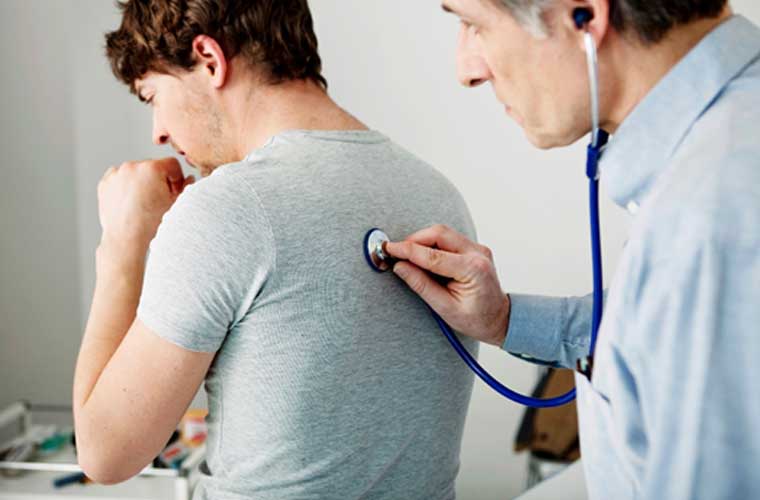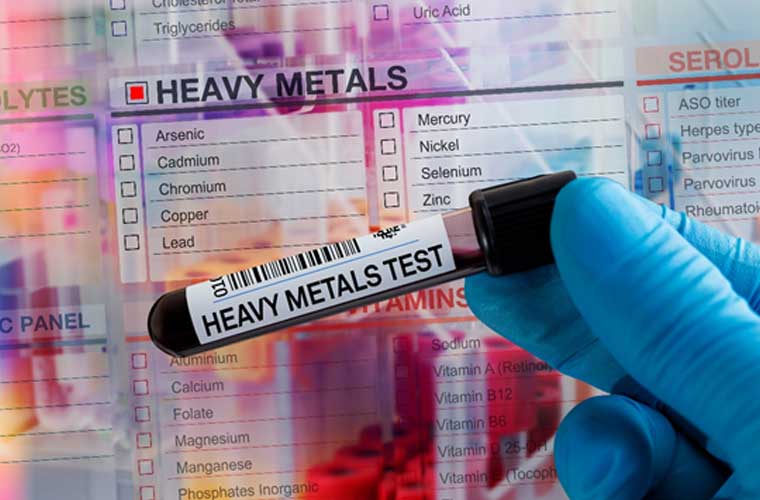Tratamiento antienvecimiento en Barcelona
Centre specialised in Detox programmes
It is true that in recent years some environmental impacts have been reduced. Rivers are cleaner, cars have filters and petrol is lead-free. But there are also many new pollutants, such as hundreds of never-before-seen chemicals, microplastics, nanoparticles and radiation from smartphones.
In the search for rare metals, we are digging up half the earth and releasing into the air and water many substances that have been underground for millions of years. We then absorb these substances in small quantities by breathing, eating and drinking. Due to the multitude of toxins and the fact that we can hardly escape them no matter where in the world we live, most people are affected sooner or later.

What are the typical toxins?
Unfortunately, we only know of the substances that we have investigated, and they are few in number:
- Heavy metals
- Mer4cury (Hg), via amalgams and oily fish
- Lead (Pb) in water, food, ceramics, gasoline and water pipes - Organochlorine compounds
- Pesticides, insecticides (pyrethroids, PCP), herbicides (glyphosate) - VOC (volatile organic compound)
- Chemical products (plastics, fluorine, xenohormones, etc.)
- Plasticisers, phthalates, solvents, etc.
- Electromagnetic fields (EMF)
- chronic infections (viral load, cell wall deficient bacteria, etc.)
- Preservatives and food additives (E numbers)
Why don't all people get sick?
Some people can tolerate toxins surprisingly well. Almost everyone knows a smoker who has lived more than 90 years. But even these people could probably have lived a few years longer and healthier without these toxins.
Over time, whoever you are, exposure to environmental toxins will cause an overload of the body, which can manifest itself in a variety of symptoms such as fatigue, headaches, poor memory, skin problems, digestive problems, pain and other health problems. Not all diseases, but many, are caused by toxins. There are also bacterial infections, etc., that can make us sick. But toxins can make the difference between getting seriously or only mildly ill from an infection, and how well we recover afterwards.
What are typical disorders caused by environmental toxins?
Patients often present with general complaints for which no clear cause can be found (multisystemic diseases, "psychosomatic" diseases). We sometimes call them "mystery illnesses". In our experience, in most cases they are related to accumulation of toxins. Toxicity usually manifests itself in the weakest part of the body, which can lead to symptoms such as fatigue, depression, digestive problems, memory loss, or back or joint pain. It is also often observed that, despite good therapies and treatments, patients do not recover because the underlying toxins prevent the body's self-healing and self-regulation (healing block).

Examples of diseases related to environmental toxins:
Respiratory diseases:
Diseases such as asthma, bronchitis and chronic obstructive pulmonary disease (COPD) can be caused by air pollution, cigarette smoke and other harmful particles in the air we breathe.
Cancer:
Certain types of cancer, such as lung, skin and bladder cancer, can be caused by exposure to harmful substances such as chemicals, radiation and pollutants in the air or water.
Neurological diseases:
Neurological diseases such as Alzheimer's disease, Parkinson's disease and Multiple Sclerosis can be caused by exposure to toxic substances, chemicals and pollutants.
Cardiovascular diseases:
Cardiovascular diseases, such as myocardial infarction and stroke, can be caused by air pollution and other harmful environmental factors.
Skin diseases:
Skin diseases such as eczema and psoriasis can be caused by exposure to toxic substances and chemicals in the air or water.
Psychological illnesses:
Burn-out, Long-Covid, Chronic Fatigue Syndrome and Depression.
Very recent studies have demonstrated the accumulation of aromatised polycyclic hydrocarbons as a cause of rheumatoid arthritis. Many other associations between the accumulation of specific toxins and specific diseases that nowadays affect a large part of the population will surely be published in the coming months.
Harmful environmental factors that have adverse health effects are mainly heavy metals such as cadmium, mercury, lead, arsenic; pesticides such as glyphosate, DDT; dioxins such as those in fatty foods of animal origin, light metals such as aluminium and organic toxins such as xenohormones, and can vary according to age, health status, epigenetics and duration of exposure.
What should I check?
The focus is on a detailed interview, with or without a questionnaire, and a thorough physical examination including the mouth and teeth (beware of dental materials). In addition, Diagnostic tests for heavy metals are required (analysis HEAVYMETALCHECK® hair) blood tests for minerals and vitamins, cell toxicity tests and microbiome analysis (blood tests). GUTCHECK® faeces 1 sample).
Here at Biosalud Day Hospital, we test for the presence of heavy metals and organic toxins such as xenohormones by means of a urinary chelation test (HEAVYMETALCHECK® with proof of provocation) In addition, the Regulation Thermometry shows us interference fields (blockages in organ functionality), and the Adaptive Neuromodulation Test (to check for imbalances between our Sympathetic Nervous System and Parasympathetic Nervous System) which we encounter mostly due to dental procedures and materials or scars. In the case of most other toxins (e.g. viral load), tests that point in the right direction (Immunocheck®). Therefore, the large number of possible toxins makes finding the right toxins, which cause or contribute to the disease, a search that should be carried out by a specialised centre with a medical specialist or expert in the field.

How can we avoid environmental toxins?
It is important to minimise exposure to toxic substances and radiation. This includes dental restorations to replace mercury fillings and minimising electromagnetic fields, especially the use of mobile phones.
Since it is difficult to change the air we breathe, it is vital to monitor the water and food we consume. Therefore, try to drink pure water and eat organically grown produce. Although this does not protect us from 100%, it is helpful and reduces pollutants in general, such as pesticides and dioxins that are liberally used in agriculture.
Nowadays, however, regular detoxification and cleansing programmes are necessary to stay healthy. For the chronically ill, detoxification at Biosalud Day Hospital is the first pillar of recovery. Every treatment starts there, with different levels, depending on the case and, above all, on what the toxicity tests carried out show us.
Detoxification measures
These are some of the measures that are usually taken at Biosalud Day Hospital to promote detoxification in a safe environment.

1. Nutritional therapy
Nutritional support is an important part of detoxification to minimise the toxic load. Through food we have direct access to the intestines. Therefore, nutrition serves as a direct means to positively influence the main organs of detoxification. In addition, the intestine is directly connected to the liver, so it can be directly stimulated by various foods.
For an optimal cleansing of the liver and intestinal tract, the diet during the Biosalud Day Hospital Detox Week consists of an organic diet, based on organically grown fruit and vegetables, gluten-free and sugar-free. As the body cleanses and gets rid of toxins, it should receive therapeutic support. For example, as fat deposits are cleansed and diminished, fat-soluble toxins that are stored in adipose tissue are released into the blood. Fat-soluble toxins are more difficult to eliminate, so we could help the patient by giving alpha lipoic acid to bind fat-soluble organic toxins. They are then excreted and cannot attack other organs. So, we control and support.
2. Detoxify, cleanse and eliminate
Our goal is to safely eliminate toxins from the intestinal tract, lungs, cells and the connective tissue between cells. It is especially important to realise that some toxins can block the very detoxification pathways we need for elimination, thus initiating a vicious cycle.
There are various methods to detoxify the body, such as fasting, special detoxification programmes, physical exercise, sauna, molecular hyperthermia, body hyperthermia, INUSpheresis® or the intake of herbs or supplements.
We try to activate the three mechanisms of detoxification: Detoxify, Cleanse and Eliminate.
Intestinal detoxification includes chlorella, a freshwater algae; zeolite, a natural mineral of volcanic origin; or medicinal charcoal. For example, when zeolite is ingested, it binds to toxins such as heavy metals and toxins found in the intestinal tract. The pollutants are expelled, and new toxins immediately pass through the intestinal wall. Thus, we can gradually eliminate toxins from the body matrix through the intestines.
Zeolite also supports detoxification through the liver. The liver detoxifies toxins in the small intestine and often the same toxins are reabsorbed in the colon. This is known in medicine as the enterohepatic (gut-liver) cycle. Zeolite can help bind toxins so that they are safely excreted.
3. The body's own ability to detoxify itself is enhanced.
Integrative Medicine detoxification programmes not only provide active detoxification, but also support the detoxification organs such as the liver, intestines, lymphatic system and kidneys. For this, we use supportive herbal medicines, neural therapy and therapies such as lymphatic drainage with pressotherapy and colon hydrotherapies, or even various types of intravenous Detox serums.
There are some important detoxification systems that work with specific nutrients and enzymes. One example is the glutathione system, which consists of three amino acids, one of which is cysteine, which contains sulphur. In stressed people, glutathione levels may decrease, and should be supplemented accordingly. Enzymes that work with glutathione, such as glutathione peroxidase, need selenium to function effectively. In addition, detoxifying the connective tissue and internal environment can help the body regain the ability to activate its regulatory mechanisms and promote the elimination of toxins through the lymphatic system.
4. Regeneration
Toxins such as heavy metals in the body and the resulting free radicals can lead to cell dysfunction and damage. It is therefore important to neutralise free radicals with antioxidants on the one hand, and to rebuild cells on the other. For this purpose, we offer special intravenous serums to regenerate cells and organs.
However, it is important to note that supplements alone are not enough to promote healthy cell regeneration. A healthy diet and habits, the introduction of natural rhythms and physical activity, sufficient sleep and stress reduction are also important factors for cell regeneration and maintaining/improving health.
Liver and gallbladder detoxification programme
This medical programme is designed for those suffering from liver and gallbladder problems, chronic gastrointestinal problems, migraine, metabolic syndrome, brain fog or rheumatism, or who simply want to cleanse themselves in regular detox weeks.
The Biosalud Day Hospital Liver Detoxification Programme is designed to detoxify and simultaneously stimulate the metabolism. In this programme, we combine our many years of experience with nutrition, detoxification therapies and fasting to provide optimal care for the liver, gallbladder and intestinal tract. This will stimulate cell renewal, increase your metabolism and make you feel more energetic.
Liver cleansing is intense, but very effective in removing "bile sludge" and other toxins that overload the liver.
Advantages:
- An opportunity to get rid of liver toxins and unblock the hepatic ducts.
- Medical therapies will support the body's natural detoxification pathways.
- The nutritional programme will help the intestine and liver to eliminate toxins and waste.
- Metabolism is restored and new energy is mobilised.
- As the liver rids itself of excess toxins, you will notice improved memory and more restful sleep.
- Gut health boosts the immune system and increases overall well-being.
- It's a good start to a new healthy lifestyle and improved well-being.
This programme is a wonderful cleansing experience that allows you to feel free from toxic stress and allows you to regain mental acuity and vitality and rebalance your metabolism. You will be under close medical supervision and in good hands.
